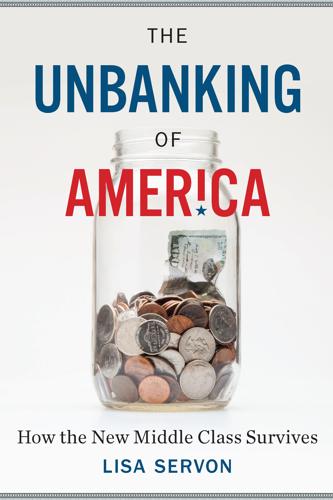
The Unbanking of America: How the New Middle Class Survives
by
Lisa Servon
Published 10 Jan 2017
Reaching into her granny cart, Marta hands me my usual—two pollo con salsa verde tamales. I have my money ready in my gloved hand and place it on her cart as she bags my lunch. She smiles and then turns to the next customer. The South Bronx is Exhibit A of what researchers call a “geography of financial exclusion,” where people tend to use mainstream financial services like banks less than people do in more affluent places. Its population of 500,000, including many immigrants and minorities, has only one bank per 20,000 residents. In Manhattan, one bank serves every 3,000 residents. More than half of the residents of Bronx Community Board 1, which includes Mott Haven, have no bank account; that figure is less than one in ten nationwide.
…
“The regulators are causing the opposite of the desired effect by making it so dangerous now to serve a lower-income segment,” Barefoot said. In short, banks have retreated from the subprime market partly for rational reasons. But, as usual, it’s the people living on the margins who suffer the most. For most of our nation’s history, banks practiced “financial exclusion,” and policy backed them up. The Home Owners’ Loan Corporation (HOLC), part of FDR’s New Deal, rated neighborhoods on a scale of A to D. HOLC used the racial and socioeconomic characteristics of residents to determine whether a neighborhood was a safe investment. Predominantly white neighborhoods were consistently rated A, an acceptable credit risk.
…
It can be as simple as a mindset: wanting, as Murphy says, “to serve all of the clients in our community, from the low-income and underbanked to the wealthiest.” MISSION ASSET FUND The office of Mission Asset Fund (MAF) sits in the middle of a busy commercial block in San Francisco’s Mission District. The brightly painted space buzzes with activity. José Quiñones started MAF in 2008, convinced that he had a better way to combat financial exclusion compared to the strategies he saw being promoted. Where policymakers saw an unbanked community, Quiñones saw people, all over San Francisco’s Mission District, saving money. They just weren’t saving it in banks. They were using ROSCAs like the ones described in Chapter 7. Rather than try to change their behavior, Quiñones thought, why not try to make what they were already doing work better?
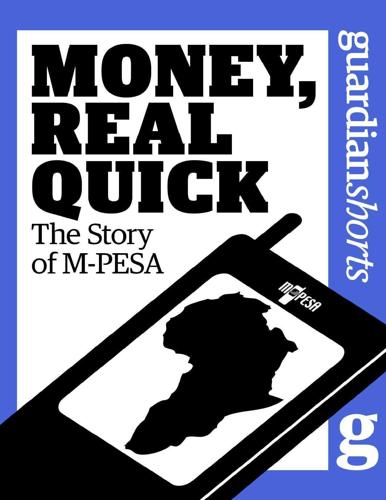
Money, Real Quick: The Story of M-PESA
by
Tonny K. Omwansa
,
Nicholas P. Sullivan
and
The Guardian
Published 28 Feb 2012
More than 80% of M-PESA users were satisfied with the system, and 21% said they used M-PESA to store money. Some had minor complaints of fraud, agents running out of cash, or glitches with the mobile network, but nothing serious—certainly nothing threatening to the financial system, which is the Central Bank’s main purview. Taken as a bookend to the 2006 FinAccess survey, which pointed to gross financial exclusion, the Bank felt these recent results showed that M-PESA was moving the needle in a positive direction. Per its initial letter of “no objection” to M-PESA, the Bank had asked ******ebook converter DEMO Watermarks******* Safaricom to track monthly transactions and volume. This data showed that M-PESA, despite its popularity and vast number of transactions per day, was actually moving a small amount of value, half of what moved through ATMs every day, and a pittance compared to the overall gross bank settlements.
…
THE NEW MOBILE MONEY PLAYING FIELD Less than a month after the initial request for an audit, the then Permanent Secretary in the Ministry of Finance, Joseph Kinyua, announced that the audit by the Central Bank of M-PESA found the service safe and reliable. “I therefore reiterate that the Treasury and the Central Bank of Kenya are committed to promoting safe and efficient innovations that enhance access to financial services, thereby addressing the challenge of financial exclusion due to infrastructural constraints.” Mr. Kinyua authoritatively stated that, according to the audit report, there was no evidence to support the claims that the service was competing with commercial banks. “In any case, there is nothing wrong with competition as long as it is pinned by a level playing field,” he said.
…
This affirmation was part of a coordinated effort with the Central Bank to give a clear signal to the market that M-PESA had been given a green light. Both the Ministry of Finance and the Central Bank took out a full-page ******ebook converter DEMO Watermarks******* advertisement in The Daily Nation. Tellingly, one of the Bank’s key public comments noted the 2006 FinAccess report on financial exclusion, pointing out that while few had access to banks, most had access to phones. The Central Bank’s statement began with an endorsement of mobile telephony: “At the onset, the Bank welcomes innovation that has been introduced in Kenya’s financial sector through the use of mobile telephony.” In addition, the Bank had gone beyond its initial audit to run an aging analysis of M-PESA accounts to see if people really were using them as de facto savings accounts.
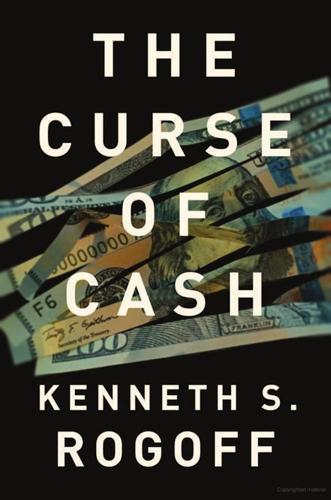
The Curse of Cash
by
Kenneth S Rogoff
Published 29 Aug 2016
Storing cash at home and carrying cash greatly increases the chance of theft.4 The risks of being subject to fraud are much higher outside the regulated financial sector. The poor may benefit from being able to use paper currency, but overall, financial exclusion implies large costs for basic services. In sum, the status quo is extremely regressive. A long-run solution is to provide government-subsidized access to financial services for the poor, giving them equal access to electronic currency and, at the same time, helping reduce some of the costs associated with financial exclusion. In principle, providing access can be done through a regulated banking sector, but there could also be a government provider of basic services.
…
Third, it is essential that poor and unbanked individuals have access to free basic debit accounts (or the future equivalent), and possibly also basic smartphones, as several countries have already done or are contemplating. The cost is ideally borne directly by the government, though it can also be imposed on banks that will eventually pass the costs on to paying customers. Under the current system, financial exclusion imposes high costs on the poor (e.g., high fees for cashing checks or wiring money), and a strong case can be made for providing better access to financial services even under the current system. The costs are small compared to providing universal health care, and the potential benefits are large.
…
., 239n13 politics: of money, 191–93; Nixon’s pressure on the Fed, 189; Paul’s attack on the Fed, 191 Polo, Marco, 15, 23, 81, 174 polymer plastic currency, 11, 204, 241n61 poor and unbanked individuals: cell phones/smartphones for, 3, 48, 93–94; drone money targeted at low-income households, 156; financial exclusion under the current system, costs of, 93, 98–99; proposal for currency phaseout, 93, 98–100 Porter, Richard, 43–44 Portugal, 46–47, 65 Posen, Adam, 232 power outages, 110 Prescott, Edward C., 231 privacy: cryptocurrencies and, 214; paper currency and, 92; personal vs. public concerns regarding, 93; phaseout of paper currency, concerns regarding, 7, 94, 100, 102; terrorism and compromises of, 77; threats to, 7, 101 profit from printing money, 81–82.
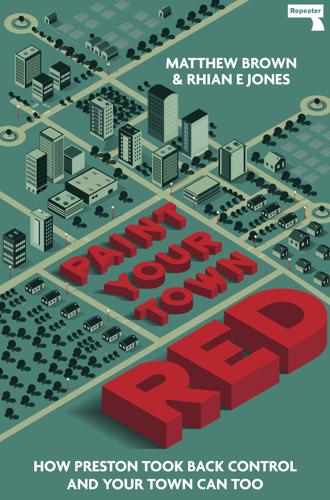
Paint Your Town Red
by
Matthew Brown
Published 14 Jun 2021
Preston has over fifty Living Wage Employers, with the Living Wage Foundation estimating that 25% of low paid workers in Preston and surrounds received a pay increase due to their place of work becoming a Living Wage Employer. To take on predatory private loan shops, Preston City Council backed a citywide credit union, “CLEVR Money”, based in Blackpool, which has now grown to over 850 members. The council also funds the voluntary sector with over £120,000 each year to combat financial exclusion and provides a range of energy-efficiency measures including free home insulation to reduce household energy bills. Future plans for Preston include a regional community bank as a customer-owned cooperative charged with enabling local economic development. Forms of community banking can channel investment to local communities while still delivering a steady financial return for investors.
…
High-street bank closures have also seen local economies suffer from reduced footfall in town centres, while small businesses have encountered difficulties getting loans since the 2008 crisis, as banks prioritise bigger, more profitable clients. Alternative models of finance organised at a local level, often in response to the abandonment of particular communities by multinational banks, can provide solutions to financial exclusion, keep money in the local economy, support small businesses and replace predatory lending firms. What Is a Credit Union? A credit union is a financial cooperative, which means it is owned and controlled by the members and is both run in and responsive to their interests rather than those of shareholders.
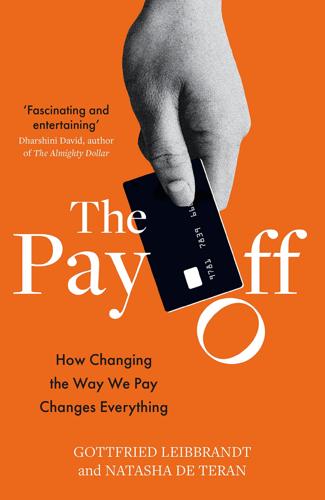
The Pay Off: How Changing the Way We Pay Changes Everything
by
Gottfried Leibbrandt
and
Natasha de Teran
Published 14 Jul 2021
IR=T; wwwtjustice.gov/opa/pr/bnp-paribas-agyees-plead-guilty-and-pay-89-billion-illegally-processing-financial; www.theguardian.eom/business/2014/aug/20/standard-chartered-fined-300m-money-laundering-compliance; www.dw.com/en/financial-crisis-bank-fines-hit-record-10-years-after-market-collapse/a-40044540 For the story on the Moldovan bank heist and its links to a Latvian bank, see: www.forbes.com/sites/francescoppola/2018/02/28/why-the-u-s-treasury-killed-a-latvian-bank/ For the story on ABLV and the US Treasury, see: https://www.fincen.gov/news/news-releases/fincen-names-ablv-bank-latvia-institution-primary-money-laundering-concern-and For the story on BCCI fraud, see: https://fas.org/irp/congress/1992_rpt/bcci/01exec.htm; http://news.bbc.co.uk/2/hi/business/5056056.stm Chapter 30 For US policy on banks accepting foreign IDs, see: http://financialservices.house.gov/media/pdf/062603sb.pdf For Dutch parliament discussion on financial exclusion, see: www.parlementairemonitor.n1/9353000/l/j9vvij5epmj1ey0/vk5dmnhjv5ui For financial exclusion of embassies, see: www.transparency.org/cpi2018; https://foreignpolicy.com/2010/11/19/37-embassies-in-washington-face-banking-crisis/; wwwr.reuters.com/article/us-financial-embassies/banks-can-keep-embassy-accounts-u-s-regulators-idUSTRE72O3ID20110325; www.federalreserve.gov/supervisionreg/srletters/srl106al.pdf For BIS and FSB on decline in correspondent banking relationships, see: T.
…
Advanced economies have their own unbanked populations; small but persistent numbers of people who survive on cash. There is now a growing risk that these people (and potentially others, too) will be excluded from the most fundamental of financial services – the payments system. What is ironic is that the same thing that is boosting financial inclusion in developing nations is heightening the risk of financial exclusion in advanced ones: technology and electronic payments. The same move away from cash that is helping the most vulnerable in, say, Lusaka, may be harming the most vulnerable in Louisville, Liverpool and Lyon. Each and every payment we make informs the future of our payments, feeding into decisions about how to staff checkouts; whether to accept cheques; and if, when and where to distribute cash.
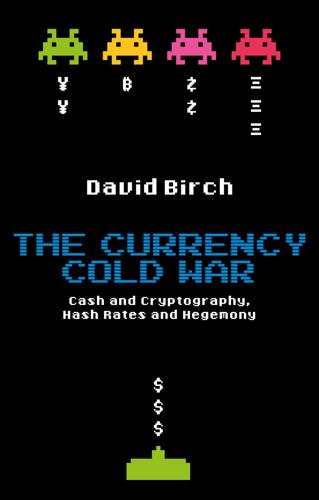
The Currency Cold War: Cash and Cryptography, Hash Rates and Hegemony
by
David G. W. Birch
Published 14 Apr 2020
The peer-to-peer (i.e. mobile wallet-to-mobile wallet) transfers sent electronic banknotes between devices without going through a central system. The fact that a central bank was prepared to at least experiment with a form of ‘mobile Mondex’, albeit for low values (in Uruguay, the wallets were limited to the equivalent of $1,000 each), may not seem like a huge deal, but it really is. It would make a significant inroad into the financial exclusion issue that I highlighted in chapter 4 as a key area in which digital currencies could be beneficial. And if the PBoC does indeed implement something along these lines, it would really change the global financial services landscape. Peer to peer Why is this peer-to-peer quality so important to digital cash?
…
Third, we need digital diligence: an alternative to the existing vastly expensive KYC/AML regimes that create a defensive moat around the incumbents. To animate digital identity and allow digital money to deliver the benefits we anticipate, a new approach is needed. Now that we have a world full of AI and machine learning, it may work better for the purposes of law enforcement (and society as a whole) to stop using KYC to create financial exclusion. Instead (bearing in mind my suggestions about KYZ!), we should aim for financial inclusion and use modern technology to track and monitor transactions in order to locate criminals and terrorists. It is entirely possible to imagine a ‘privacy-first’ scheme that erects high KYC barriers with limited tracking, coexisting with a ‘security-first’ scheme that has low KYC barriers but complete tracking.
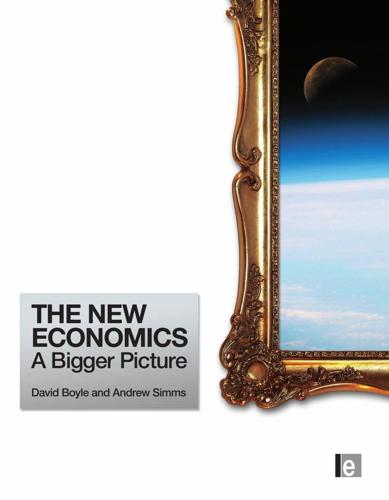
The New Economics: A Bigger Picture
by
David Boyle
and
Andrew Simms
Published 14 Jun 2009
Government support has been short term and inadequate, leaving the sector without adequate funding to cover a gap created by banks. But the crisis could be an opportunity to use the leverage of public ownership to improve support to the sector. First, banks should disclose their lending patterns, revealing where there is systemic financial exclusion and provide information to rectify the situation. Banks could also work with CDFIs by referring clients and providing loan capital, receiving tax breaks or other incentives to do so. To help underpin the sector, government could use unclaimed assets to fund a social investment wholesaler. APPENDICES 165 6 Encourage the introduction of complementary, multilevel currencies to provide credit in tune with the needs of regions, towns, cities and neighbourhoods, whilst helping to inoculate the economy from financial shocks Complementary currencies have a successful track record of providing local means of exchange, when money is running short in the local economy.
…
BizFizz works with passionate people in relatively small and defined communities where there is some level of economic disadvantage, using an innovative, individual approach based on coaching people to achieve their dreams – and backed by a local panel of key advisors and local business people. BizFizz has a proven record of increasing business start-up and survival, but also increases the confidence and sense of self-reliance among the community as a whole. www.bizfizz.org.uk Community finance Community development finance plays a vital role in the UK to address financial exclusion and underinvestment in disadvantaged areas through provision of finance 174 THE NEW ECONOMICS and money advice to individuals and enterprises. nef was instrumental in setting up the Social Investment Task Force, and introducing the idea of Community Investment Tax Relief, helped found the Community Development Finance Association, incubated the London Rebuilding Society, and is a founding partner in the Adventure Capital Fund, as well as of the European Microfinance Network. nef was involved in researching and assisting in the development of seven community banking partnerships in England and Wales, which partner credit unions, community development finance institutions and money advice agencies in the co-delivery of community finance services to low and moderate income households. www.cdfa.org.uk Community land trusts Land trusts were developed at the Institute of Community Economics as a way of dividing the property, which can be owned outright, from the land it stands on, which is owned by a trust.
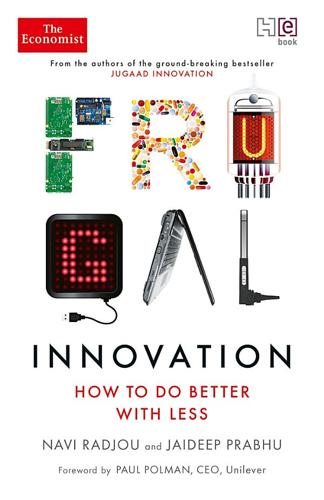
Frugal Innovation: How to Do Better With Less
by
Jaideep Prabhu Navi Radjou
Published 15 Feb 2015
For instance, in the logistics sector, Mars, a global food manufacturer, has developed a sustainable distribution network in Germany by sharing its vehicles with rivals. Work with the social and public sectors Large companies are facing growing pressure from governments, customers and employees to act as responsible corporate citizens by solving pressing social issues such as health-care access and financial exclusion. It is too often assumed that corporations are just profit-hungry monsters that ignore social problems. In fact many of them do care, but they lack the knowledge, skills, resources, or the right business model to tackle social challenges systematically and profitably. They may even be too proud to admit their ignorance or inexperience.
…
., “Industrial Ecosystems: Developing Sustainable Industrial Structures”, MIT master’s thesis, Smart Communities Network, 1995. 12Corkery, M., and Silver-Greenberg, J., “Lenders Offer Low-Cost Services for the Unbanked”, New York Times Dealbook, July 22nd 2014. 13Fera, R.A., “American Express Spotlights the Issue of Financial Exclusion in Davis Guggenheim Doc ‘Spent’”, Fast Company, March 2014. 14Birol, J., serial entrepreneur and strategy consultant, interview with Navi Radjou, August 25th 2014. 15Wiseman, L., Thinkers50-ranked leadership expert, interview with Navi Radjou, August 18th 2014. 16“Pearson debuts new global accelerator class”, Pearson News, June 16th 2014. 17Coughlin, B., CEO, Ford Global Technologies, e-mail exchange with Navi Radjou, August 2014. 18Radjou, N., “Innovation Networks: Global Progress Report 2006,” Forrester Report, June 2006. 19Vandebroek, S., chief technology officer, Xerox, interview with Navi Radjou, August 25th 2014. 20Musk, E., “All Our Patent Are Belong To You”, Tesla Blog, June 12th 2014. 21Litzler, J-B., “Sébastien Bazin divise Accor en deux pour mieux le réveiller”, Le Figaro, November 27th 2013. 22Lacheret, Y., senior vice-president, entrepreneurship advocacy, Accor Group, interview with Navi Radjou, July 7th 2014. 8Fostering a frugal culture 1Hall, J., “Sir Stuart Rose on the ethical spirit of Marks & Spencer”, Daily Telegraph, February 1st 2009. 2Vasanthakumar, V., Senior Associate, Office of the Chief Education Adviser at Pearson, interview with Jaideep Pradhu, August 28th 2014. 3Datta, M., head of Plan A delivery, Marks & Spencer’s worldwide properties, interview with Jaideep Prabhu, May 9th 2014. 4Marks & Spencer’s Plan A Report, 2014. 5Faber, E., CEO, Danone, e-mail exchange with Navi Radjou, August 2014. 6Lawrence, J., senior sustainability adviser and in-house counsel to Kingfisher Group’s Net Positive strategy, interview with Jaideep Prabhu, February 21st 2014. 7Kingfisher, Net Positive Report, 2013/14. 8Ibid. 9Marks & Spencer, op. cit. 10Radjou, N., Prabhu, J. and Ahuja, S., L’Innovation Jugaad: Redevenons Ingénieux!
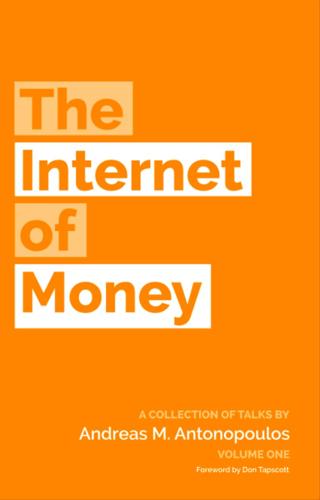
The Internet of Money
by
Andreas M. Antonopoulos
Published 28 Aug 2016
Dumb Networks E economic activities, Primates and Money economic inclusion, Communications Expanding While Access to Banking Is Declining economics, Tragedy of the Commons electricity, Infrastructure for Natural Gas, From Natural Gas to Electricity elements, Bitcoin’s Atomic Structure email, Multiple Currencies Coexist, Alt Groups Will Destroy the Internet email attachments, Email and Email Attachments Will Destroy the Internet Ether, Choosing Currencies and Communities ethereum, Currency as a Language evolution, Currencies Evolve expression, Currency as a Means of Expression F fees, Bitcoin, the Invention, There Are No Spam Transactions in Bitcoin, Open Innovation and Opt-In Systems, Fee Optimization and Scaling, Spam Transactions, Legitimate Transactions, Illegitimate Transactions festival, Festival of the Commons festival of the commons, Dumb Networks, Innovation, and the Festival of the Commons financial exclusion, Dreaming of Totalitarian Control over All Financial Transactions financial inclusion, Predicting the Future for consumers, Open Innovation and Opt-In Systems freedom, Communications Expanding While Access to Banking Is Declining, Censorship of Financial Transactions, Bitcoin, the Zombie of Currencies, Banking Privilege and Surveillance G game theory, Open Innovation and Opt-In Systems geopolitics, Communications Expanding While Access to Banking Is Declining global, Money of the People, Solving Payment Problems global culture, Communications Expanding While Access to Banking Is Declining grand arc, Grand Arc of Technology H HD wallets, Festival of the Commons 2012-2014 hierarchy, Banking: Liberator to Limiter honeypot, Attacks Build Resistance I identity, Dreaming of Totalitarian Control over All Financial Transactions, Banking Privilege and Surveillance incentives, Open Innovation and Opt-In Systems inclusion, Money of the People, Banks for Everyone, Including 6.5 Billion People in a Global Economy, Banking Privilege and Surveillance incremental tech, Designing for Innovation index, Index Currency infrastructure inversion, Infrastructure Inversion, From Horses to Vehicles banking, From Banking to Bitcoin data, From Voice to Data electricity, From Natural Gas to Electricity paved roads, From Horses to Vehicles innovation, Recognizing Innovation, Open Innovation and Opt-In Systemsadoption, Infrastructure for Natural Gas asking permission, New Architecture, New Access automobiles, The Dangers of Automobiles, Electricity, and Bitcoin, New Technologies, Riding on Old Infrastructure banking, New Architecture, New Access, Open Innovation and Opt-In Systems, Festival of the Commons, Banking Privilege and Surveillance byob (be your own bank), Including 6.5 Billion People in a Global Economy cameras, Incumbent Reactions to Innovation competition, Infrastructure for Human Voices creativity, Building Blocks of Lego credit cards, Paper to Plastic crime, The Dangers of Automobiles, Electricity, and Bitcoin criticism, The Dangers of Automobiles, Electricity, and Bitcoin criticisms, Infrastructure for Horses, Infrastructure for Natural Gas disruptive tech, Designing for Innovation economic activities, Primates and Money electricity, Infrastructure for Natural Gas for consumers, Open Innovation and Opt-In Systems HD wallets, Festival of the Commons 2012-2014 incremental tech, Designing for Innovation infrastructure inversion, From Horses to Vehicles internet, UX and Society interstitial, Interstitial Innovation investment, Festival of the Commons 2012-2014 Linux, Incumbent Reactions to Innovation makers, Recognizing Innovation mash-up, Interstitial Innovation media, Infrastructure for Natural Gas modem, Infrastructure for Human Voices MP3, Incumbent Reactions to Innovation multisignature, Festival of the Commons 2012-2014 new medium, Separating the Medium and the Message open, Incumbent Reactions to Innovation paper money, Precious Metals to Paper permission, The Smart Network - Phones permissionless, Neutrality, Criminals, and Bitcoin, New Architecture, New Access, Bitcoin’s Dumb Network regulation, Predicting the Future tools for, Building Blocks of Creativity wallet, Fee Optimization and Scaling international finance, Money of the Peopleinternet, Bitcoin, the Invention, Neutrality, Criminals, and Bitcoin, New Architecture, New Access, The Dumb Network - Internet, UX and Society, Usenet Will Destroy the Internetprinting press, Authority by Production interstitial, Interstitial Innovationinvestment, Festival of the Commons 2012-2014 K keys, Master-Slave Architecture, Wallets aren’t wallets permission, Wallets aren’t wallets L language, How Old Is Money?
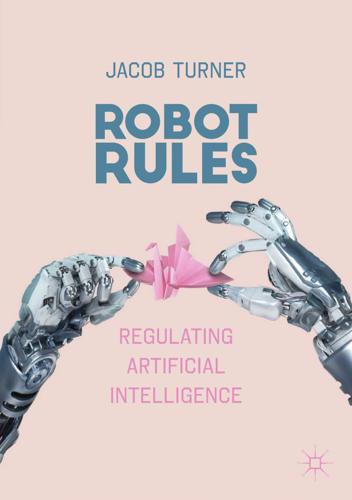
Robot Rules: Regulating Artificial Intelligence
by
Jacob Turner
Published 29 Oct 2018
The FCA observed in its impact assessment:The sandbox has enabled a variety of tests from firms with innovative business models that look to address the needs of more vulnerable consumers who may be particularly at risk of financial exclusion. The House of Lords Select Committee on Financial Inclusion published a report in March 2017 which cited the FCA sandbox as a positive way of encouraging fintech solutions to aspects of financial exclusion.51 Promoting the inclusion of the whole of society is essential to creating a sustainable environment for AI regulation and growth in the longer term. As discussed in Chapter 6 at Section 8.1, the FCA FinTech sandbox is now part of a global collaboration of financial regulators—demonstrating that this type of flexible and responsive governance technique presents multiple lessons for future AI regulation. 3.5 Industry Standards Bodies Another type of industry-led regulation comes from standard-setting bodies.
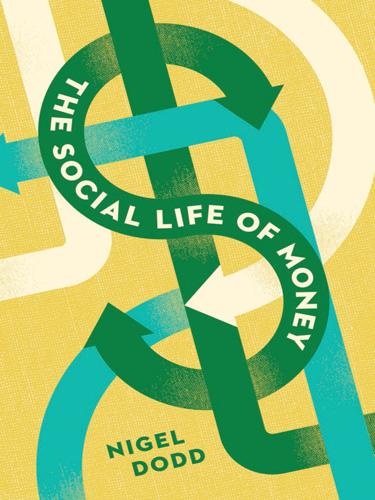
The Social Life of Money
by
Nigel Dodd
Published 14 May 2014
They have all made important contributions to a tradition of practical schemes that use innovations in the design of money and the price system to improve economic conditions, including proposals by renowned economists, such as Irving Fisher’s stamp scrip (Fisher, Cohrssen, et al. 1933) and Robert Shiller’s baskets (Shiller 2008). Finally, there are now several thousand alternative monetary systems in operation worldwide, using a range of different media and accounting schemes designed to foster local economic growth, resist financial exclusion, and even challenge what many believe to be the persistent and damaging hegemony of states and banks in the way that money is produced and managed. There are, then, whole hosts of ways in which, to use Simmel’s memorable phrase, war has been declared on the monetary system.3 Although not all such skirmishes involve the construction of utopian programs, many of them are triggered by what Jameson, after Bloch (Bloch 2000), called the utopian spirit.
…
Significantly, the factory was small, employing only around 2,000 people, and was surrounded by a society living under very different life conditions.7 When Simmel states that “completely or approximate socialistic arrangements until now were feasible only in rather small groups, but are ever frustrated in large ones” (Simmel 2009: 53), a parallel is suggested with today’s local currency movements, which operate as what Polanyi would call special-purpose monetary circuits serving specific needs (for specialized credit, local trade, and so on) within much larger circuits of general-purpose money. The stated aim of such movements is rarely (if ever) to replace mainstream (general-purpose) money. Rather, it is to provide a counterweight to it, that is to say, a set of monetary arrangements that can make up for the shortcomings of mainstream money, such as financial exclusion (Dodd 2005b). Likewise, socialism appeals to Simmel not tout court, but rather as a corrective, i.e., a tendency that resists the equally complete realization of the form of individualism he identifies with economic liberalism. If anything, socialism would work most effectively only from within a liberal market order.
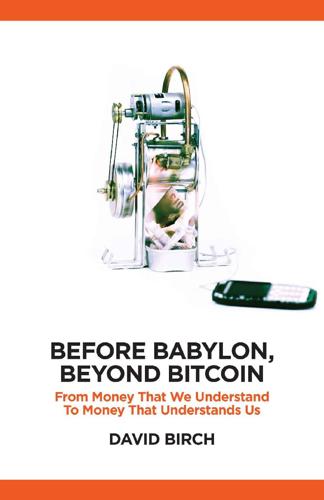
Before Babylon, Beyond Bitcoin: From Money That We Understand to Money That Understands Us (Perspectives)
by
David Birch
Published 14 Jun 2017
They are also paying the highest transaction costs because they lack credit ratings and references, and (in an example I once heard from Elizabeth Berthe of Grameen at the Consult Hyperion Forum back in 2011) they are the ones most likely to have their life savings eaten by rats. So what should be done? Well, the answer is clear. Make electronic payment accounts that are capable of supporting account-to-account push payments available to every European citizen at no cost. Now, financial exclusion is often associated with an inability to provide a proof of identity or address (e.g. immigrants, homeless people), unemployment or financial distress in general, and low educational attainment. Electronic money itself does not attack any of these issues so we must have relaxed KYC for low-maximum-balance accounts.
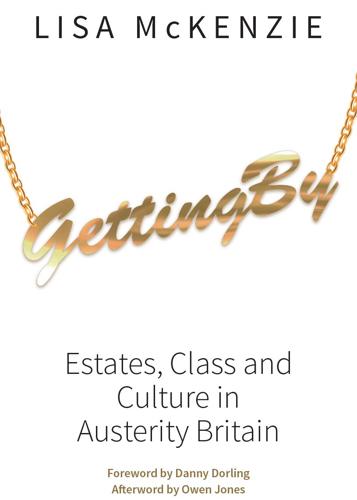
Getting By: Estates, Class and Culture in Austerity Britain
by
Lisa McKenzie
Published 14 Jan 2015
In both age groups, only London authorities and Manchester have higher rates of child poverty. Between 2009 and 2010, despite a small reduction in child poverty rates, Nottingham’s position relative to other authorities worsened. The experiences of parents are shaped by the local employment market, financial exclusion, economic recession, national changes to welfare benefits, adult literacy levels, the availability of good quality affordable childcare, by fuel poverty, housing and environmental issues, parental physical and mental health, and more. St Ann’s also has the highest number of people not employed within the city.
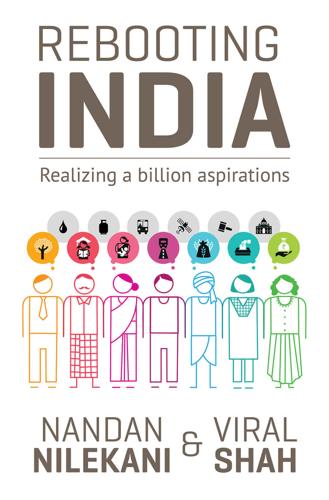
Rebooting India: Realizing a Billion Aspirations
by
Nandan Nilekani
Published 4 Feb 2016
On one side, people open bank accounts, buy insurance, take out loans and transfer money to their families with relative ease. On the other side of this divide, the poor and disadvantaged rely on a shadowy system of moneylenders and adhoc financial services of questionable legality. Such basic activities as sending money to relatives become fraught with difficulties and costs. On a smaller scale, financial exclusion also sharply limits the ability of people to save, invest and improve their circumstances. Looking at the larger picture, this results in significant damage to India’s economy. For example, only 3 per cent of Indians file income tax returns; in comparison, nearly 45 per cent of all US citizens pay federal taxes.2 A nation cannot progress when a huge number of its citizens are cut off from accessing the fruits of the country’s development.
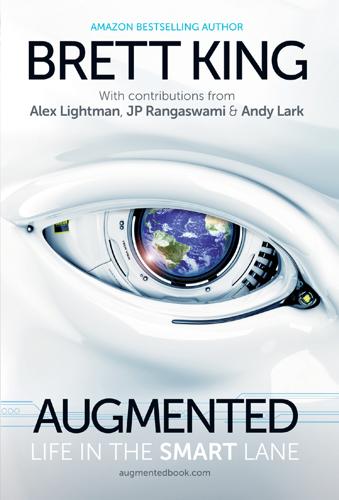
Augmented: Life in the Smart Lane
by
Brett King
Published 5 May 2016
In the case of M-Pesa, it means that mobile money users are likely to save 25 per cent more annually5 than their unbanked contemporaries. If you insist that someone has to have a driving licence or identity document and then needs to get to a physical branch to fill out an application form in order to open a bank account, you are actually increasing the likelihood of financial exclusion. You will actively prevent the poor from having access to financial services. This is a key problem in markets like the United States, India and Italy. In these countries, it is not access to branches that excludes people from banking services, it is the rules that bank regulators have created around opening bank accounts.
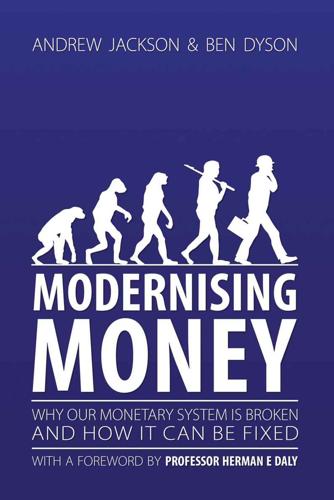
Modernising Money: Why Our Monetary System Is Broken and How It Can Be Fixed
by
Andrew Jackson (economist)
and
Ben Dyson (economist)
Published 15 Nov 2012
This catch-all requirement prevents banks from offering alternative products that offer the same services as Transaction Accounts but allow the bank to use the funds for other purposes (which would effectively be a return to the current monetary system). 2. One concern is that charging fees for the provision of Transaction Accounts will hurt the poor and increase financial exclusion. A solution to this problem is for the government to simply provide anyone earning below a certain threshold with a small grant which can be used to open a Transaction Account. 3. In addition, the need for the Bank of England to provide additional intraday liquidity through same day repo for securities transactions (as it currently does in CREST under a procedure known as auto-collateralisation) will no longer be required, as due to the reforms every account will be fully liquid. 4.
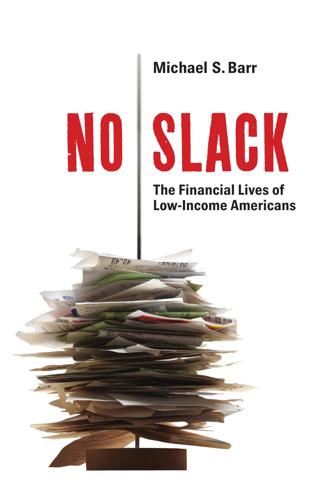
No Slack: The Financial Lives of Low-Income Americans
by
Michael S. Barr
Published 20 Mar 2012
Without affordable and accessible banking services, these households frequently use nonbank substitutes: a typical LMI household spends around half of its annual outlays on financial services in the high-priced alternative financial services sector to obtain services, such as check cashing, wire transfers, and short-term credit, and does not accumulate significant savings (chapter 3, this volume). From a public-policy perspective, this financial exclusion and the use of highpriced alternative financial services undermine the government’s mechanisms for income redistribution, reduce the employment incentives of programs such as the earned-income tax credit, and reduce the positive network externalities in electronic payment systems (Humphrey, Kim, and Vale 2001; Barr 2004).1 An understanding of preferences for payment-card features can help improve the overall equity of the banking system by building on the efficiency gains from electronic payments.
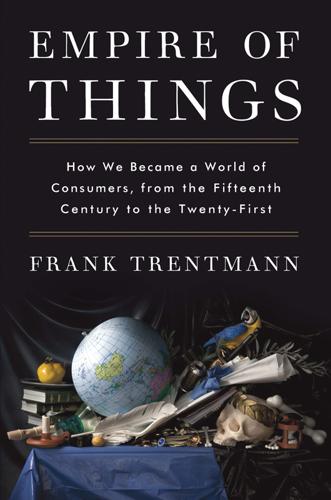
Empire of Things: How We Became a World of Consumers, From the Fifteenth Century to the Twenty-First
by
Frank Trentmann
Published 1 Dec 2015
See Elizabeth Lanyon, chair of the law council of the Australia Financial Services Committee, in Consumers International, ‘Living on Credit’, in: Asia Pacific Consumer 35/36, no. 1/2, 2004: 1–51, 11. The above draws further on Luigi Guiso, Michael Haliassos & Tullio Japelli, eds., Household Portfolios (Cambridge, MA, 2002); Elaine Kempson & Claire Whyley, Kept out or Opted out?: Understanding and Combating Financial Exclusion (Bristol, 1999). In the United States, the number of households holding mutuals and pension funds as well as direct stocks shot up from 32% to 49% in the 1990s. 61. Quoted in Jackie Botterill, Consumer Culture and Personal Finance: Money Goes to Market (Basingstoke, 2010), 149. 62. For the United States: R.
…
Udo Reifner & Helga Springeneer, ‘Die private Überschuldung im internationalen Vergleich – Trends, Probleme, Lösungsansätze,’ in: Schuldenkompass 2004, 174. 88. Reifner et al., Consumer Over-indebtedness in the European Union; Oliver J. Haas, ‘Over-indebtedness in Germany’, International Labour Office, Working Paper no. 44 (2006); Elaine Kempson & Claire Whyley, Kept Out or Opted Out?: Understanding and Combating Financial Exclusion (Bristol, 1999); Nicola Jentzsch & Amparo San José Riestra, ‘Consumer Credit Markets in the United States and Europe’, in: Bertola, Disney & Grant, eds., The Economics of Consumer Credit, 34–9; and A. Raijas, A. R. Lehtinen & J. Leskinen, ‘Overindebtedness in the Finnish Consumer Society’, in: Journal of Consumer Policy 33, no. 3: 209–23. 89.